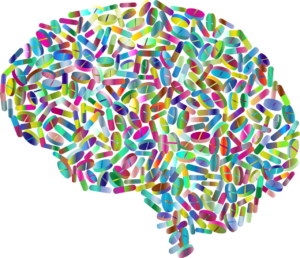Murders in Miami and Missouri Highlight the Need for Sunshine on Psychiatric “Treatments.”
Image by Gordon Johnson from Pixabay

2024/06/02
The tragic cases of the father in Miami who killed his daughter and the mother in Missouri who turned herself in after killing her two children last week highlight the devastating consequences of the government backed mental health system embedded with the psychiatric and pharmaceutical industrial complex. The result of which is that no one seems to be getting better.
In fact, the data are never shared with the public about who is the treating psychiatrist or the name of the mind-altering drug or cocktail of drugs these killers have been prescribed. Why? One would think government agencies would demand the stats of these deadly outcomes and use the information as a kind of measure. Knowing the prescribed psychiatric drugs, the killers were taking would be a first step in holding the court-appointed behavioral health vendors accountable.
Both individuals named above were engaged with their state family court systems and were known to have mental health conditions. Both had been suffering from mental disorders and the Miami father had been prescribed psychiatric drugs as “treatment.” Whether the Missouri mother had been prescribed a psychiatric drug is still unknown. The problem with the diagnosis is that it is not based in science and is purely subjective in nature. Worse still, the psychotropic drug “treatments” have lists of possible dangerous and deadly side effects, including mania, psychosis, abnormal behavior, suicidality and even homicidally. Federal and state agencies have received billions of dollars to provide mental health services in the form of psychiatric “experts” within custody cases.
In Miami, Jeronimo Duran, a father under the influence of psychiatric medication, took the life of his two-year-old daughter. Despite being under the care of mental health professionals, the details of his treatment, including the specific drugs prescribed and the psychiatrist responsible, remain undisclosed to the public. In Missouri, Ashley Parmeley, a 36-year-old mother, confessed to fatally shooting her 9-year-old daughter and drowning her 2-year-old son. Parmeley, who had a known mental health condition, walked into the Festus police station in a disheveled state, admitting to her horrific actions.
Court authorities were aware of both suspects’ mental health struggles, yet the system failed to prevent these heartbreaking outcomes. Why? Are the behavioral health “experts” of the court unaware of the possible serious adverse events associated with psychiatric drugs? Hardly. Is it possible that the push by the psycho/pharmaceutical industry far exceeds the need to err on the side of caution? Are behavioral health contracts too lucrative? Too many of these tragic cases are occurring on a weekly basis and they raise serious concerns about the effectiveness of government-backed mental health services and the behavioral health industry.
Despite significant investments in mental health treatments, nobody seems to be getting better and the more money shoved at the mental health industry, the greater the mental health crises and increased devastating consequences for families and communities.
The lack of transparency surrounding the specific medications and treating psychiatrists involved in these cases is deeply troubling. The public has a right to know the details of the treatment provided, as these professionals and institutions are entrusted with the care and well-being of individuals struggling with mental health issues. Courts often rely on the expertise of mental health professionals in making critical decisions, yet these tragic events call into question the reliability and accountability of the system.
It is imperative that we reevaluate the practices and protocols in place to ensure that individuals receive the appropriate care and support they need, and that public safety is prioritized. The failures in these cases have had catastrophic outcomes, and they serve as a wake-up call for the urgent need to reform and replace mental health services. Families, communities, and society deserve better protection and assurance that the systems in place are truly equipped to prevent such tragedies from occurring in the future.
It is long past time to provide the public with mental health information of those accused of violent crimes. Who is the treating psychiatrist and what is the psychiatric drug “treatment?” Only with that information in hand can the public start to understand that despite enormous increases in psychiatric drugging, no one is getting better, and violent, murderous behavior is increasing.
Be the Voice for the Voiceless
Every dollar you give is a powerful statement, a resounding declaration that the struggles of these families will no longer be ignored. Your generosity today will echo through generations, ensuring that the rights and well-being of children are fiercely guarded.Don’t let another family navigate this journey alone. Donate now and join us in creating a world where every child’s mind is nurtured, respected, and given the opportunity to thrive. As a 501(c)3 organization, your donation to AbleChild is not only an investment in the well-being of vulnerable children but also a tax-deductible contribution to a cause that transcends individual lives.

